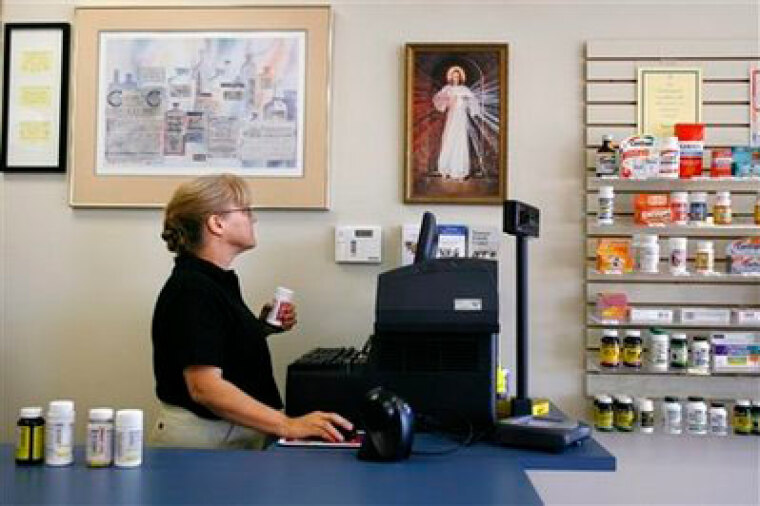Christians Oppose Allowing Pharmacists to Refuse Contraceptives; White Evangelicals Divided

Majorities of all four major religious groups in the U.S. were found to oppose allowing pharmacists to refuse contraceptives to women due to their faith, though white evangelicals were the most divided.
The Public Religion Research Institute survey, which was conducted between August 22-September 2 of 1,856 U.S. adults, and has a margin of error of plus or minus 2.7 percentage points at the 95 percent confidence level, also found that 56 percent of all respondents support Roe v. Wade.
The survey, released on Wednesday, noted that two-thirds, or 67 percent of Americans would not approve of a policy allowing pharmacists with religious objections to refuse to provide contraceptives to women.
Breaking down the responses by various religious groupings, the results showed that strong majorities of black Protestants, Catholics, white mainline Protestants, and the religiously unaffiliated would oppose such a policy. White evangelical Protestants were the group most split on the issue, with 53 percent opposed to such a policy, and 38 percent in favor of it.
When asked if churches and other places of worship should be required to provide contraception and other birth control services in their employee health care plans, less than half, 45 percent, of the full sample agreed.
Other religious groups, however, were deemed unworthy of such an exemption by most Americans. Fifty-nine percent said religious hospitals should be required to provide the coverage for its employees, and 54 percent said religously-affiliated colleges and universities should be required to provide the coverage.
Democrats were most likely to say religious groups should be required to provide the coverage, with 83 percent wanting the requirement for religious hospitals, 74 percent for religious colleges, and 63 percent saying churches and other places of worship should be required to abide by such a rule.
When the Barack Obama administration required employers to provide birth control coverage, an exemption was allowed for churches and places of worship, but not other religiously-affiliated groups. Many religious groups sued, however, and the U.S. Supreme Court ruled in favor of The Little Sisters of the Poor in the 2016 case Zubik v. Burwell. The Supreme Court also ruled in favor of allowing an exemption for a family-owned corporation with religious objections in Burwell v. Hobby Lobby.
Americans, and religious groups, were also divided on the question of whether federal funds should be prevented from going to organizations that also provide abortion services. In total, 53 percent of respondents said that they would oppose a policy that would prohibit such organizations from receiving federal finds, while 40 percent were in favor of it.
White evangelical Protestants were evenly divided on the question, with 46 percent in favor and 46 percent opposed. White mainline Protestants were also divided, at 46 percent in favor and 49 percent opposed. The other religious groupings were somewhat more opposed to such a restriction, with black Protestants the most opposed, at 63 percent.
When it comes to U.S. President Donald Trump, white evangelical Protestants were the only group with a favorable opinion of him, at 72 percent. The other religious groupings were either divided or mostly opposed to Trump, with black Protestants holding the most unfavorable opinions, at 75 percent.
On Roe v. Wade, the 1973 Supreme Court decision that legalized abortion in America, white evangelical Protestants were the only group, at 56 percent, to say that it was decided incorrectly and should be overturned.
White mainline Protestants and black Protestants were more supportive of Roe, at 67 and 58 percent respectively. Catholics were more divided on the issue, with only 42 percent of Hispanic Catholics backing Roe v. Wade, compared to 54 percent of white Catholics who said that it was decided correctly.
Read more about Christians and contraceptives on The Christian Post.